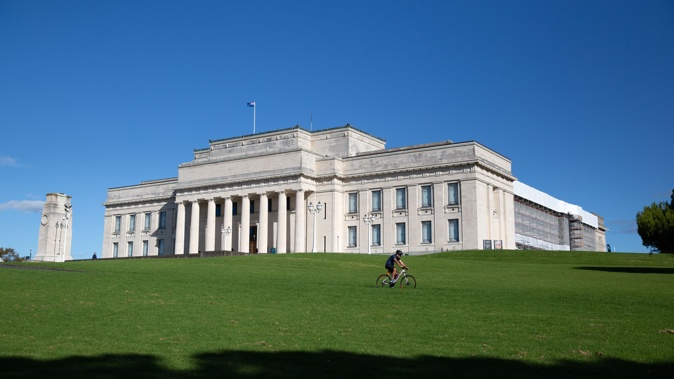
Auckland War Memorial Museum’s two most popular attractions, Te Marae Atea Māori Court and the Pacific galleries, have been closed indefinitely due to the detection of asbestos.
Two sources have told the Herald the galleries are likely to remain closed for four years. However, the museum said it is too early to confirm the duration of the closure.
The tourist hotspot was forced to close from May 10 after asbestos dust was detected in the museum’s original 1929 building and its Grand Foyer. More asbestos was later identified in “additional areas of the building”.
The museum reopened in stages 24 days after working with WorkSafe New Zealand and Auckland Council, and receiving clearance from a licensed asbestos assessor.
But sections of the north side of the building – including Te Marae Ātea Māori Court, Pacific Galleries and the Grand Foyer – have remained closed as asbestos remediation work continues.
“At this stage, we are unable to confirm when Te Marae Atea Māori Court and our Pacific galleries will reopen, but planning work continues so that the Museum’s Trust Board can make further decisions towards the end of 2025,” a spokeswoman said.
She said the museum signalled in this year’s annual plan to prepare for the renewal of Te Marae Ātea Māori Court and Pacific galleries in time for the museum’s centenary in 2029.
 The meeting house, Hotunui, at Auckland Museum. Photo / File
The meeting house, Hotunui, at Auckland Museum. Photo / File
The annual plan said the two galleries are the museum’s “most popular” attractions and long overdue for a significant refresh as part of “The Centenary Project”, estimated to cost upwards of $30 million.
They are situated in the original 1929 Museum building and occupy a vast space, housing significant taonga, including the large wharenui, Hotunui, the pātaka and the war canoe, Te Toki a Tapiri, the annual plan said.
“The recent discovery of asbestos came to light during initial investigative work for this centenary programme. It is now clear that it will have a significant impact on our plans, and we need to prioritise the safe remediation of the asbestos issue.
“The Museum’s Trust Board will be working through a range of options for the redevelopment of the gallery spaces, considering the work required for asbestos removal and any potential impact gallery closures may have, including for visitation and revenue generation.
“Planning and assessment work is still underway, so it is too early to confirm how long these galleries would need to be closed and what impacts there may be,” said the spokeswoman.
She said consultation with Taumata-ā-Iwi, comprising Ngāti Whātua, Ngāti Pāoa and Tainui, and the Pacific Advisory Group would continue to inform the museum’s decisions.
It was revealed that asbestos was first detected in the museum in December, when it was found on the roof in a space not publicly accessible.
In March, more asbestos was found during investigative work in the original 1929 part of the building in preparation for the renewal of Te Marae Ātea Māori Court and Pacific galleries.
Static asbestos dust and debris was located in the void area above Te Marae Ātea Māori Court and on a ledge below perimeter vents.
Exposure to asbestos fibres can pose significant health risks, leading to several serious lung diseases, including asbestosis, lung cancer and mesothelioma.
 The pātaka (storehouse) raised on posts in the Māori Court at Auckland War Memorial Museum.
The pātaka (storehouse) raised on posts in the Māori Court at Auckland War Memorial Museum.
Auckland Deputy Mayor Desley Simpson earlier called for urgency from Fire and Emergency as the museum haemorrhaged tens of thousands of dollars in lost ticket sales during the closure.
“This is a real problem for the museum. They average about 2600 visitors a day,” she said.
“Some of those are obviously Aucklanders who don’t pay, but our visitors to the city who love going to museums [do] ... They’ve lost probably $8000 a day for admissions – over four days, of course, that’s $32,000.”
During May, the museum lost more than $450,000 in potential revenue.
The museum relies on a combination of funding, including grants from Auckland Council, donations and entry fees from people outside Auckland. Entry for Aucklanders is free.
Take your Radio, Podcasts and Music with you









